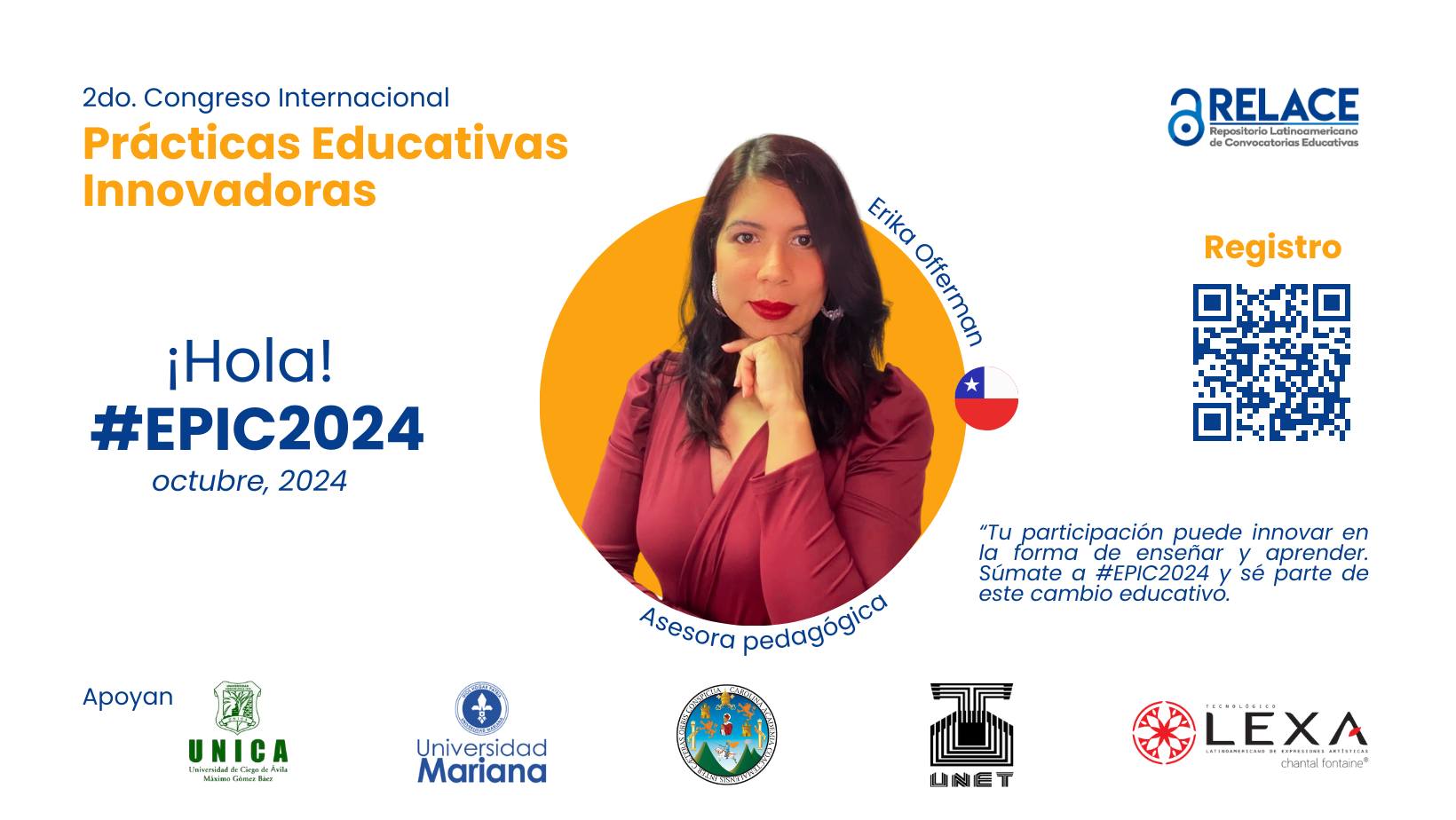El aprendizaje cooperativo en la disciplina Práctica Integral de la Lengua Inglesa/Cooperative learning in the discipline Integrated English Practice
Palabras clave:
análisis de texto, aprendizaje cooperativo, comunicaciónResumen
A partir de la observación, la práctica pedagógica y la sistematización teórica realizada se constató que el aprendizaje cooperativo es uno de los métodos de instrucción más importantes en el aprendizaje de lenguas en el mundo, usado como método de comunicación que brinda a los estudiantes oportunidades para maximizar la comunicación en la lengua extranjera; el objetivo del presente artículo es exponer los resultados del empleo del aprendizaje cooperativo para el análisis de textos en la disciplina Práctica Integral de la Lengua Inglesa. El resultado de la investigación se revela a través del trabajo metodológico y el proceso de validación de la disciplina de la carrera Lenguas Extranjeras.
Citas
Acosta, R., Santiago, J., Pérez, J. E. & Mancini, A. (1989). Communicative Language Teaching. Belo Horizonte: Gráfica Lastro.
Alarcón, E., Sepúlveda, P. & Madrid, D. (2018). Qué es y qué no es aprendizaje cooperativo. ENSAYOS, Revista de la Facultad de Educación de Albacete. 33(1), 205-220.
Azorín, C. M. (2018). El método de aprendizaje cooperativo y su aplicación en las aulas. Perfiles Educativos. XL (161), 181-194.
Chen, M. L. (2005). The effects of the cooperative learning instructional approach on Taiwanese EFL students’ motivation, English listening, reading, and speaking competencies (Tesis Doctoral). La Sierra University, Riverside, CA, United States.
Cohen, E. G. (1994). Restructuring the classroom: Conditions for productive small groups. Review of Educational Research. 64(1), 1-35.
Crandall, J. (1999). Cooperative language learning and affective factors. En J. Arnold (Ed.). Affective factors in Language Learning. Cambridge University Press. Beijing: Foreign language Teaching and Research Press.
Ellis, R. (1999). Learning a Second Language through Interaction. Amsterdam. Philadelphia: John Benjamin publishing company.
Glanz, J. (2004). Teaching 101: classroom strategies for the beginning teacher. California: Corwin Press.
Hedge, T. (2000). Teaching and Learning in the Language Classroom. Oxford: OUP. Shanghai: Shanghai Foreign Language Education Press.
Inglehart, M., Brown, D. R. & Vida, M. (1994). Competition, achievement, and gender: A stress theoretical analysis. In P.R. Pintrich, D.R. Brown & C.E. Weinstein (Eds.), Student motivation, cognition, and learning. (311-330).
Jia, G. (2003). Psychology of foreign language education (2nd edition). Nanning: Guangxi Education Press.
Johnson, D. W. & Johnson, R. T. (1999). Learning together and alone: Cooperative, competitive, and individualistic learning (5th Ed.). Boston: Allyn & Bacon.
Kagan, S. (1995). We can talk: Cooperative learning in the Elementary ESL Classroom. www.ericfacility.net/databases/ERIC
López, G. & Acuña, S. (2011). Aprendizaje cooperativo en el aula. Inventio. La génesis de la cultura universitaria en Morelos. 7 (14), 28-38.
Marzano, R., Pickering, J. & Pollock, J. (2001). Classroom instruction that works: Research-based strategies for increasing student achievement.
Alexandria, VA: Association for Supervision and Curriculum Development.
McCafferty, S. G., Jacobs, S. G. & Da Silva, A. (2006). Cooperative learning and second language teaching. New York: Cambridge University Press.
Muñoz, J. J., Navas, E. & Graña, J. L. (2016). Factores psicológicos de riesgo y protección para la conducta antisocial en adolescentes. Acta Española Psiquiatr. 33(6), 366-373.
Santos, M. A., Lorenzo, M. & Priegue, D. (2013). Conectando a los docentes para el desarrollo de la interculturalidad. Educación XXI. 16(1), 63-83.
Silver, F., Strong, R. & Perini, M. (2007). Strategic teacher selecting the right research-based strategy for every lesson. Association for Supervision and Curriculum Development. Alexandria, Virginia USA.
Slavin, R. (1995). Cooperative Learning: Theory, Research, and Practice (2nd Edition). Boston: Pearson.
Slavin, R. (2014). Cooperative Learning and Academic Achievement: Why does Group Work? Anales de Psicología. 30(3), 785-791.
Stern, H. H. (1992). Issues and Options in Language Teaching. Oxford: OUP. Shanghai: Shanghai Foreign Language Education Press.
Trujillo, F. & Ariza, M. (2006), Experiencias educativas en aprendizaje cooperativo. Granada: Grupo Editorial Universitario.
Vaillant, D. & Manso, J. (2019). Orientaciones para la Formación Docente y el Trabajo en el aula: Aprendizaje Colaborativo. SUMMA. Fundación La Caixa.
Wang, W. (2017). Improving Students' Oral Skills Through A Cooperative Learning Approach to Teaching Chinese. Informe parcial para optar por el grado de máster en educación. University of Victoria: College English.
Williams, P., Sheridan, S., Harju-Luukkainen, H. & Pramling, I. (2015). Does group size matter in preschool teacher´s work? The skills teachers emphasize for children in preschool groups of different size. Journal of Early Childhood. Education Research. 4(2), 93-108.
Descargas
Publicado
Cómo citar
Número
Sección
Licencia
Los autores ceden su derecho de autor a Educación y Sociedad y otorgan a todos los usuarios potenciales, de manera irrevocable y por un período de tiempo ilimitado, el derecho de utilizar, copiar, transformar y distribuir el contenido. La cesión de derecho de autor incluye también:
- Traducir, adaptar, reutilizar, resumir el trabajo y ejercer todos sus derechos sobre dichas adaptaciones, resúmenes, extractos y obras derivadas.
- Incluir el trabajo y su versión traducida, adaptada o resumida, total o parcialmente, en bases de datos informatizadas, selección o recopilación de textos digitales o impresos a disposición de terceros.
Cada autor asume que en caso de que el artículo fuese aprobado para su publicación en la revista Educación y Sociedad:
- Cede sus derechos patrimoniales y autoriza al comité editorial para la publicación del documento con el correo electrónico y la afiliación institucional de los autores.
- Autoriza la divulgación en la página web de la revista, en repositorios y directorios en se incluye o pueda incluirse en el futuro.
- Certifica que ha contribuido directamente al contenido intelectual de este manuscrito.
- Se responsabiliza públicamente con su contenido y acepta que su nombre figure en la lista de autores.
- Garantiza que el artículo es un documento original y no ha sido publicado total ni parcialmente, en ningún otro lugar.
- No ha incurrido en fraude científico, plagio o vicios de autoría; en caso contrario se exime de toda responsabilidad a la revista Educación y Sociedad y se declara responsable.
- Se compromete a no presentar este artículo a otra revista para su publicación, hasta recibir la decisión de la editorial de la publicación sobre el concepto final.












